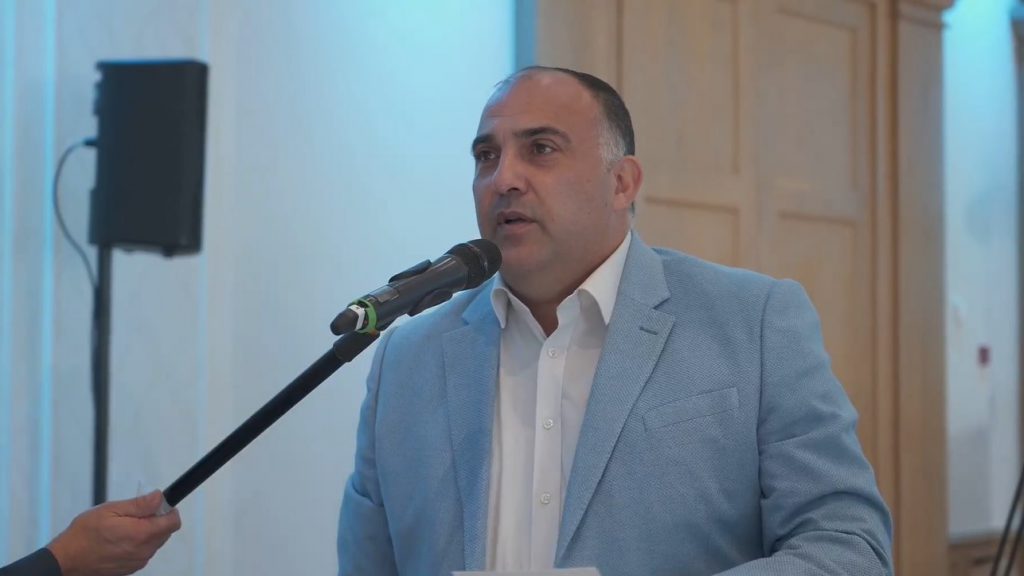‘Government’s own employment policies are being undermined by certain politicians’

Employment policies aiming to upskill the Maltese workforce and address certain job shortages are doomed to fail if the government keeps poaching skilled productive workers from the private sector.
UHM CEO Josef Vella sounded this warning during the launch of the National Employment Policy 2021-2030 which was presided by Finance and Employment Minister Clyde Caruana.
In his remarks the UHM CEO welcomed the wide array of initiatives outlined in this policy which aims to raise the workers’ quality of life through better paid jobs, higher productivity and a more qualified workforce. However, he pointed out this policy would not succeed as long as it would keep being undermined by certain politicians.
“In recent months I have met 10 young workers aged 23 years or under who were given a job on the State payroll, despite the fact they had a good job in the manufacturing industry within the private sector. It is pointless government unveiling these policies if at the same time these policies are being undermined by members within the same government,” Vella said.
In his reaction, the Finance Minister insisted he was against such practice. “This is bad. I never did it and will never resort to such thing,” Caruana remarked.
“I either stick to what I am preaching or else the desired change in this country will never materialise,” he added. The Minister stopped short of saying what action he would be taking to crackdown on such practice within government.
Lack of family friendly measurers forces engineers to leave their profession
Vella recounted that in the last three weeks he had come across the case of two female engineers who were no longer practising their profession. “It turned out they sought a job in a school as this was the only way to benefit from family friendly measures in the absence of such possibility in their own sector. This means that the country is not reaping the rewards of its huge investment in a skilled workforce.”
The UHM CEO added that he recently came across a similar case of three nurses who left their job as their only option to benefit from family-friendly measures was to work as a learning support educator. “The attitude of certain employers who make life hard for their employees to benefit from these measures is costing very dear as the entire country is missing out on the services of these skilled workers and professionals,” he added.
UHM proposal on reducing 40-hour week ruled out for the time being
During the launch, the Finance Minister also referred to the UHM proposal for a study into the possibility of shortening the 40-hour week. According to Caruana it was premature to debate such possibility as not all sectors of the workforce were “ready” for such a change in terms of their productivity and skillset.
However, the government’s position was made amply clear following remarks by UHM Assistant Director Mario Sacco who floated the idea of starting off this study within those sectors in the economy who had reached the desired levels of productivity and skills.
In his reply, Caruana noted that employers in the private sector were free to explore such idea but government’s policy was to wait until all the workforce would be ready before moving to this step. “Either we do it together or nothing,” the Finance Minister said, while pointing out he would not like to see a two-speed reform on such matter.
Such remark indicates that the Minister has failed to grasp the meaning behind the union’s proposal, which is a study to find out not only which sectors, but which places of work can and are ready to adopt the proposal. Reducing the 40-hour week through a one-size-fits-all approach was not what the UHM proposed.
Time to bring back the student-worker scheme?
The new policy touches on the shortage in skilled workforce in the vocational sector and proposes to creation incentives for employers to roll-out apprenticeship schemes and training programmes. Malta Hotels and Restaurant Association President Tony Zahra remarked that it was very significant that this idea was on the same lines of the student-worker scheme rolled out by the Labour government of Dom Mintoff some 40 years ago. “Clearly, we have to ask ourselves what went wrong as otherwise we would not be here proposing something very similar after all these years”.
What does the policy propose?
The new employment policy proposed 40 recommendations. The following are the main highlights:
- Launch a national skills census to have a snapshot of worker skills and develop a framework to be able to draft new policies
- Encouraging life-long learning and upskilling of workers
- Foster participation in apprenticeship schemes and trainee programmes by rolling out incentives to employers
- Encourage people remain in employment after retirement to boost their income by computing separate income tax returns for their pension and workplace earnings.
- Make work pay by taxing overtime like part-time at 10% up to a capping of €10,000
- Give fiscal incentives for research and development in the private sector
- Reduce seasonality of employment in Gozo by offering national insurance credits during the off-peak season.
The entire policy document can be downloaded here.
